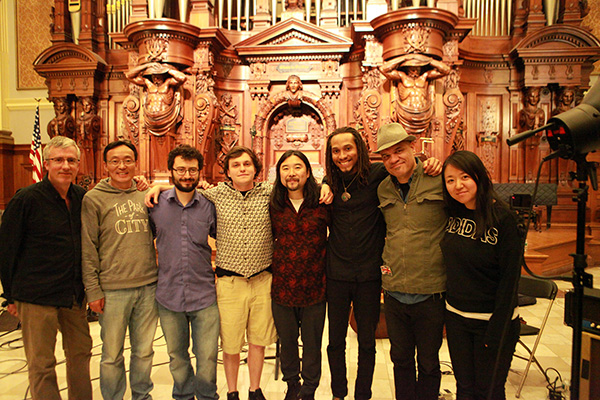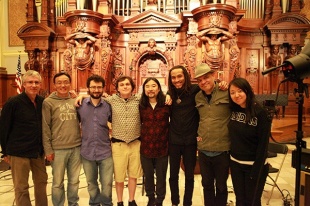Improvisation adds a modern twist to ancient tunes


About two decades ago, Ye Yunchuan traveled to China's western Gansu province to see the famous Mogao Grottoes in Dunhuang.
The Chengdu-born and Beijing-based music producer returned home with more than just a camera full of photos - he also gained an inspiration to create a Dunhuang-themed album.
Featuring seven young Chinese female folk musicians - Zhao Xiaoxia (guqin), Yang Xue (erhu), Su Chang (guzheng), Yu Yuanchun (pipa), Li Juan (flute and xiao), Di Lin (ruan) and Ma Rui (percussion) - this album will finally be released on June 6.
Titled Moonlight Glow Over Dunhuang, the album comprises 10 musical pieces created based on music scores that date back thousands of years. What makes the album unique, Ye says, is that the seven musicians improvised in the recording room like a group of jazz musicians jamming together.
"We brainstorm and inspire one another, which is rarely done in traditional Chinese folk music," says Ye, who also plays percussion in the album.
"We have similar musical backgrounds and have known each other for more than 10 years. So our cooperation was very smooth and natural. This album takes the audience back to the Dunhuang from thousands of years ago with some fresh beats," says guqin player Zhao.
"Many musicians from ancient China played the guqin without scores. Improvisation has always been important in the development of the guqin," adds Zhao, 35, an associate professor at the Central Conservatory of Music in Beijing.
Unlike Western music, which has strong beats, melody is an essential part of Chinese music, says Ye, who is renowned for his creations that fuse musical elements from the East and the West. Ye moved from his hometown in Chengdu to Beijing 17 years ago and started his company, Rhymoi Music, in 2003. The company has released about 65 albums in 15 years.





































